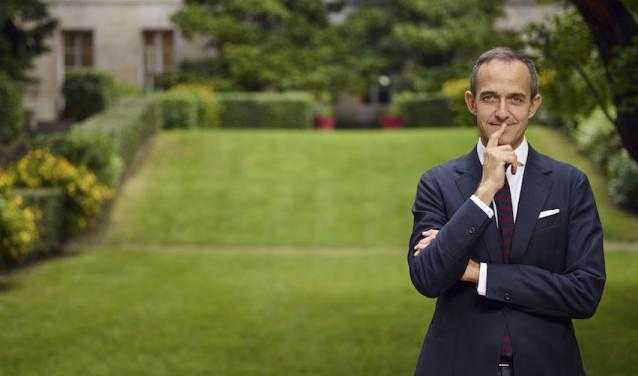Home>Education as a Road to Better Governance

15.11.2018
Education as a Road to Better Governance
From the opening of the Paris Peace Forum and throughout the three day event, debates and discussions regularly returned to the key role that youth and education have to play in peace and global governance. It is for this reason that Sciences Po felt it crucial to be one of the founding members and part of the executive committee of this annual international forum.
Today, peace means not only the absence of violence, but effective cooperation, at local, regional and global levels by diverse stakeholders who are actively and concretely building peace each and every day. In this most crucial of undertakings, the role of education in framing the pathways, shaping the leaders, and imagining the structures of governance for peace and prosperity is increasingly vital. At Sciences Po, we believe that the role of universities, as institutions that protect and stand for free thought and open debate, is to be in and of themselves model societies of openness, inclusivity and thereby platforms for creating better global governance.
In the words of the late Kofi Annan, who shared his wisdom with Sciences Po students on multiple occasions, “Education is a human right with immense power to transform”. The Paris Peace Forum calls for the transformation of global governance, and Sciences Po, as a world-class civic university shaping tomorrow’s leaders, recognises its responsibility to advance more open and more inclusive leadership. Our future lies in the wielding of the power of education.
We believe indeed that universities must be environments in which all talents are recognised, included, and nurtured. Diversity is our motto. To this end, Sciences Po was, in 2001, the first university in France to take affirmative action in its admission procedures, in order to ensure equal access to candidates of all social and cultural backgrounds, geographic locations, and financial means. Today, one in three students receives financial aid. Our student body has also grown internationally, with half of our 13,000 students carrying a non-French passport, and representing a total of 120 countries. Sciences Po also takes various actions to advance gender equality and prevent discrimination on the basis of gender. As President of Sciences Po, I am also proud to have been designated a He for She Champion since 2016, a role which I see as a mean to exchange with students and other institutions on the topics of gender, female empowerment, and equal opportunity.
Frédéric Mion and Enrico Letta, Dean of PSIA, talk with students at the Paris Peace Forum.
Ultimately, we hope that at Sciences Po, one of the world’s most international universities today, our students learn to engage in constructive, open international dialogue to advance ideals of peace, stronger global governance and prosperity for all. Students come to Sciences Po to immerse themselves in an international community, one of the most diverse in the world, and enrich themselves thanks to a multitude of viewpoints, cultures and experiences.
In addition, we believe that academia is the ideal space in which to encourage international cooperation and dialogue. Through global cooperation and the development of international partnerships, such as the network of 470 active partner universities that Sciences Po has built worldwide, higher education institutions are in fact key diplomatic actors, particularly in times of tension between states. We believe that universities are also fundamentally the bedrocks of civic engagement, at all levels. These values are integrated into the core of our programmes and academic approach, and are carried out through our institutional actions.
This is why being part of the pioneering effort of the Paris Peace Forum was so important to our community. I thank the 100 students who took part in the forum, the many faculty who spoke and all our teams who mobilized, and look forward to next year, as we all #StandForPeace and believe in the power of education.
- Frédéric Mion
